Gynecology covers female reproductive health, including menstrual disorders, fibroids, endometriosis, and gynecologic cancer care.
Send us all your questions or requests, and our expert team will assist you.
Overview and Definition
Gynecology is the branch of medicine that focuses on the health of the female reproductive system. It involves diagnosing, treating, and managing conditions that affect the uterus, ovaries, fallopian tubes, vagina, and breasts. Gynecology is often linked with obstetrics, which is pregnancy care, but it covers women’s health at every stage of life, from puberty to menopause. This field addresses many issues, such as menstrual problems, fertility concerns, sexually transmitted infections (STIs), and hormone imbalances. It also includes care for conditions like fibroids, endometriosis, and both non-cancerous and cancerous diseases. Since reproductive health is closely tied to hormones, gynecological care is important for a woman’s overall physical and emotional health.


Information about facilities: Highlight the Center of Excellence for Minimally Invasive Gynecology. Mention the use of Robotic Surgery (da Vinci systems) for complex hysterectomies and myomectomies, which allow for faster recovery and smaller incisions. Describe the advanced Colposcopy Unit for precise evaluation of abnormal Pap smears and the availability of 4D Ultrasound for detailed pelvic imaging.
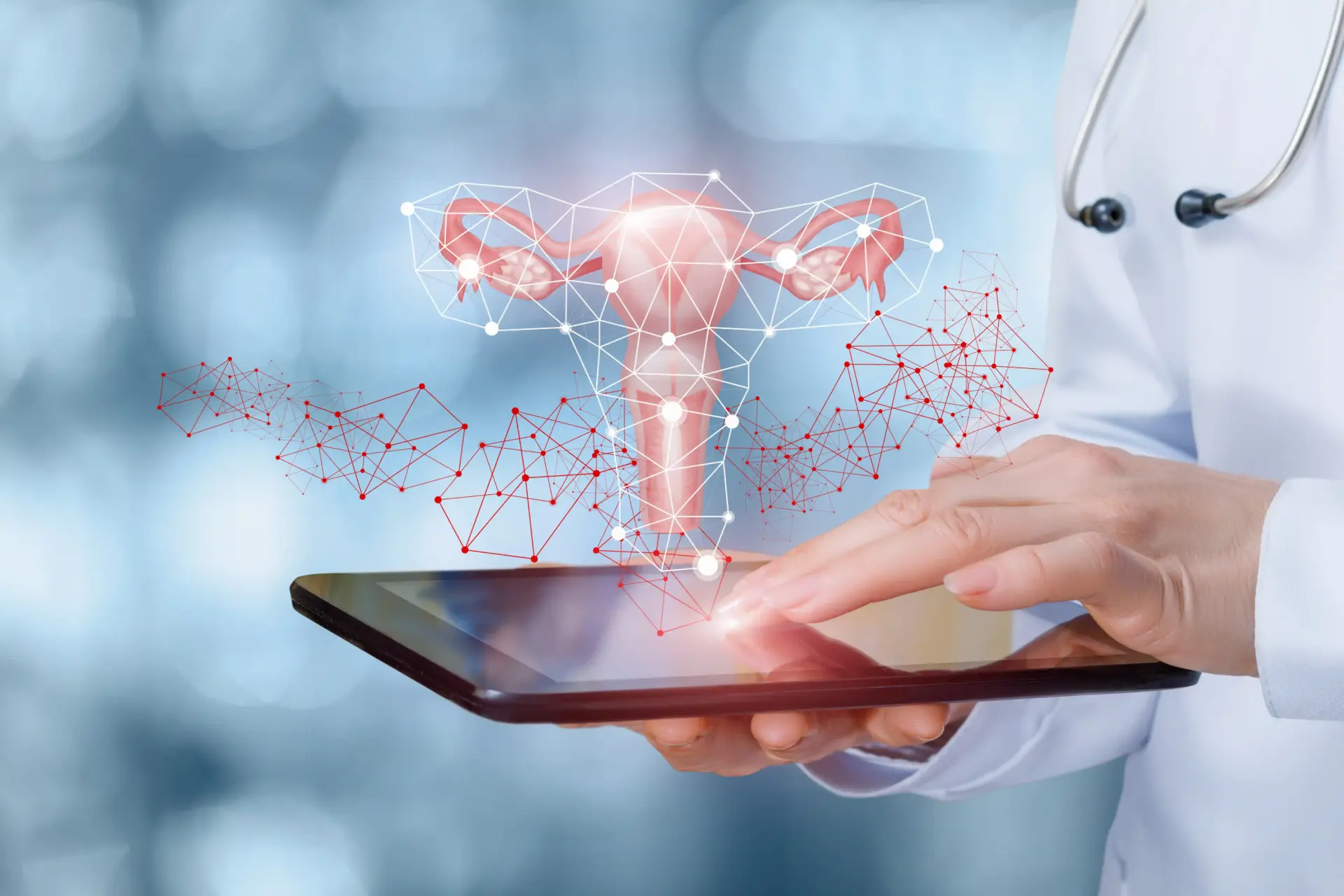
Gynecological conditions can affect the whole body. For example, endometriosis may cause ongoing pain and tiredness, which can lower quality of life and affect mental health. PCOS can change how the body uses energy, leading to weight gain and insulin resistance. Hormonal changes during menopause can weaken bones and impact heart health. Overall, gynecological health influences energy, mood, and long-term well-being.
Several factors can raise the risk of gynecological problems. Age matters; cancer risk goes up after menopause, while conditions like endometriosis are more common during the reproductive years. Genetics, such as BRCA genes, can increase the chance of ovarian cancer. Lifestyle factors like obesity can raise the risk of uterine cancer and fertility problems. HPV infection is the main cause of changes in the cervix.
Gynecological conditions are diagnosed using several tools. Pap smears and HPV tests are standard for checking cervical health. Transvaginal ultrasound is often used to see the uterus and ovaries. For a closer look inside the womb, doctors may use hysteroscopy, which uses a small camera and does not require any cuts.

Send us all your questions or requests, and our expert team will assist you.

A gynecologist is a partner in women’s health. They offer preventive screenings to catch cancer early, perform surgeries to fix problems, and manage complex hormone treatments. Gynecologists also give advice on birth control, fertility, and changes during menopause.
Treatment plans are personalized based on a woman’s age and reproductive goals. For younger women, keeping fertility options open is important, such as removing a fibroid but leaving the uterus intact. For women after menopause, care may focus on easing symptoms or preventing cancer.
The treatment journey usually starts with simple options like medication or hormone therapy. If surgery is needed, doctors often choose laparoscopic, or keyhole, surgery. Recovery times differ—minor procedures may let you go home the same day, while bigger surgeries like hysterectomy might need a short hospital stay.
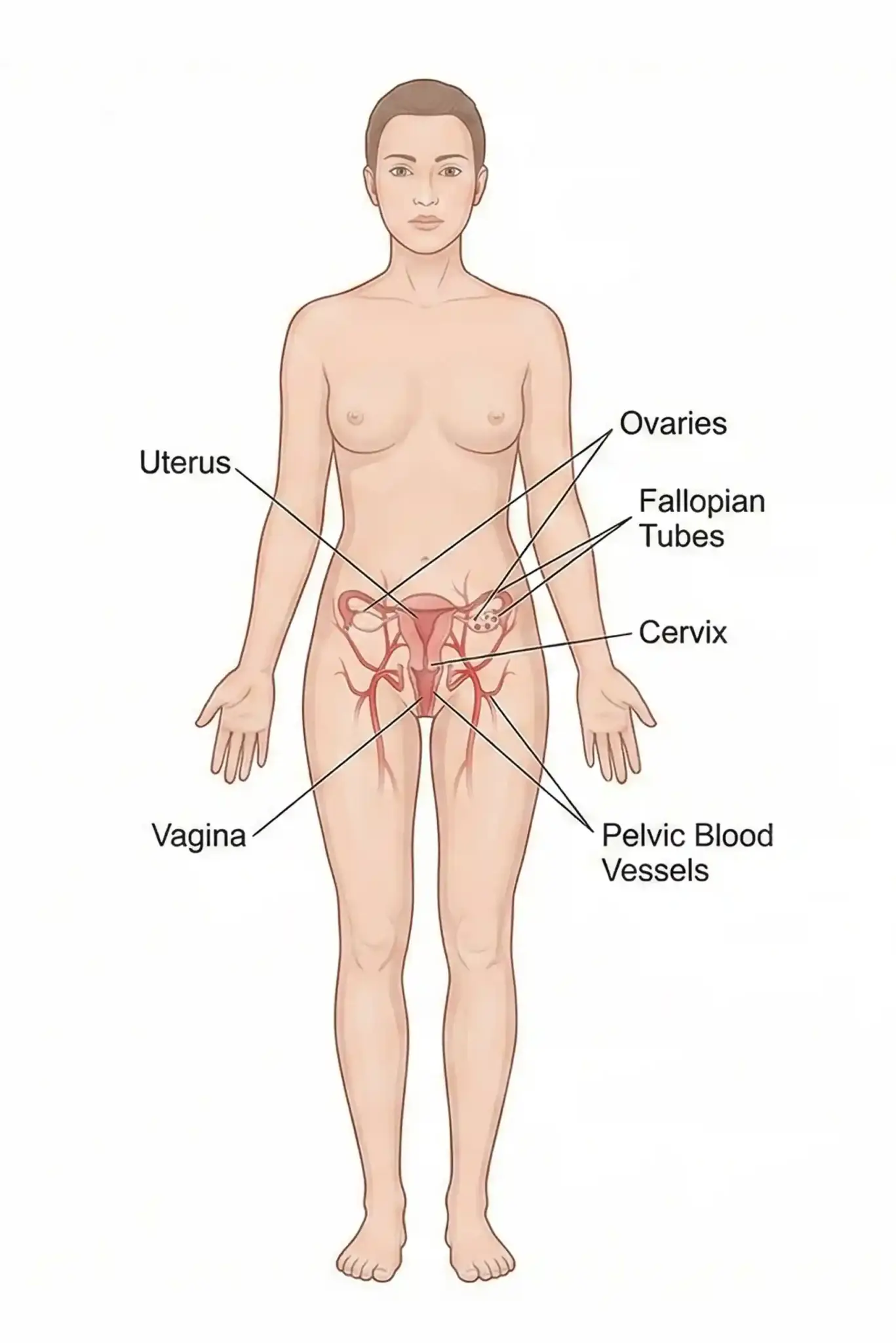
Gynecologists often work together with other specialists, such as urologists for bladder issues, oncologists for reproductive cancers, and reproductive endocrinologists for fertility concerns. This teamwork helps make sure that complex problems, like deep-infiltrating endometriosis, get expert care from all angles.
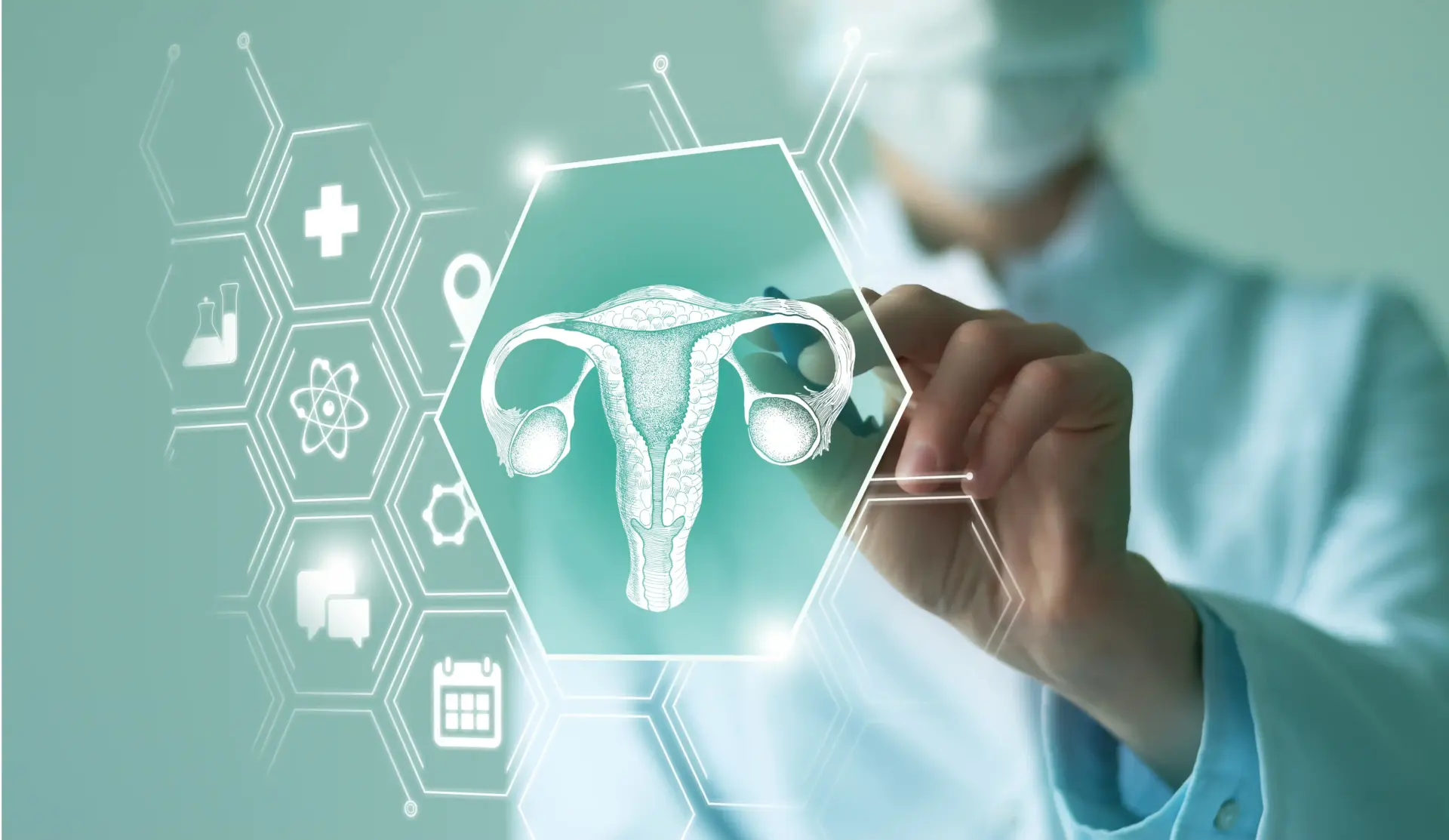
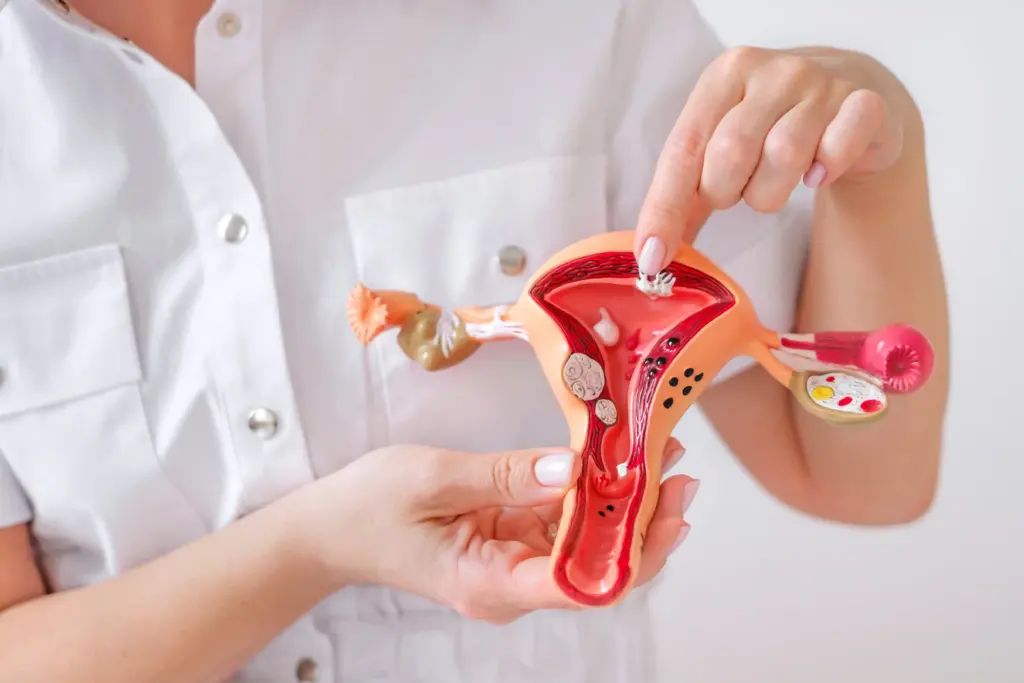
Pre-treatment knowledge: Advise patients on preparation. They should track their cycles to provide an accurate history. For surgical procedures, they need to discuss hormone replacement therapy (HRT) options if the ovaries are being removed. Open communication about sexual health and family planning desires is critical for choosing the right treatment.
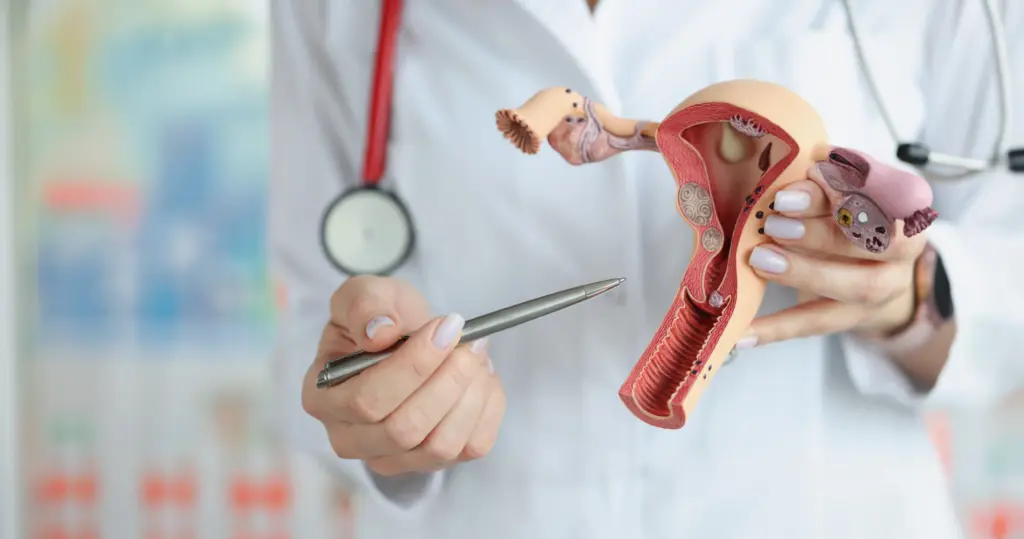
Gynecological health is intimate. It requires a setting that offers privacy, trust, and the highest medical standards. Liv Hospital’s Department of Obstetrics and Gynecology is designed to support women at every stage of life, from their first exam to childbirth and beyond into menopause.
We treat the woman, not just the reproductive system.
At Liv Hospital, we are committed to empowering women with knowledge and providing world-class medical care that respects your body and your choices.

A pelvic exam is a physical examination of the reproductive organs to assess shape, size, and abnormalities. At the same time, a Pap smear is a screening test that collects cells from the cervix to detect cancer or precancerous changes.
The American College of Obstetricians and Gynecologists recommends that the first visit take place between the ages of 13 and 15 to establish care and provide education, usually without an internal exam.
Yes, regular visits are essential for preventive care, screenings, and vaccinations specific to women’s health that might not be covered in a general physical.
Common signs include irregular periods, unexplained weight gain or loss, severe fatigue, mood swings, acne, and changes in hair growth patterns.
Menopause is a natural transition, but medical treatment such as hormone therapy or non-hormonal medications may be used to manage severe symptoms like hot flashes or bone loss if they affect quality of life.


Millions of women deal with anxiety linked to their estrogen levels. But many don’t know about this important connection. Finding out how hormonal changes affect

Millions of women deal with anxiety that changes with their menstrual cycle. But many don’t know that hormone levels play a big role in these

Many women feel anxious at certain times in their cycle. Studies from Harvard and Emory University found that estrogen changes can greatly affect anxiety. At

Are you feeling anxiety or constant nervousness in your 40s or 50s? You might not know that these feelings could be linked to perimenopause. Perimenopause

New studies show a strong link between low estrogen and more anxiety, mainly in women going through menopause and hormonal shifts. At Liv Hospital, we

Anxiety can start in your hormones, not just your mind. Fluctuations in estrogen levels can greatly affect mood and anxiety in women. Studies show estrogen is

Leave your phone number and our medical team will call you back to discuss your healthcare needs and answer all your questions.
Your Comparison List (you must select at least 2 packages)